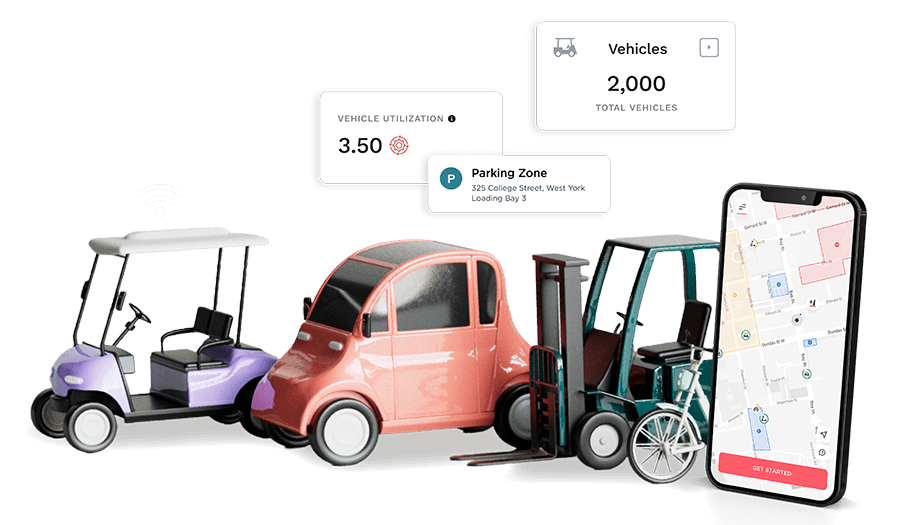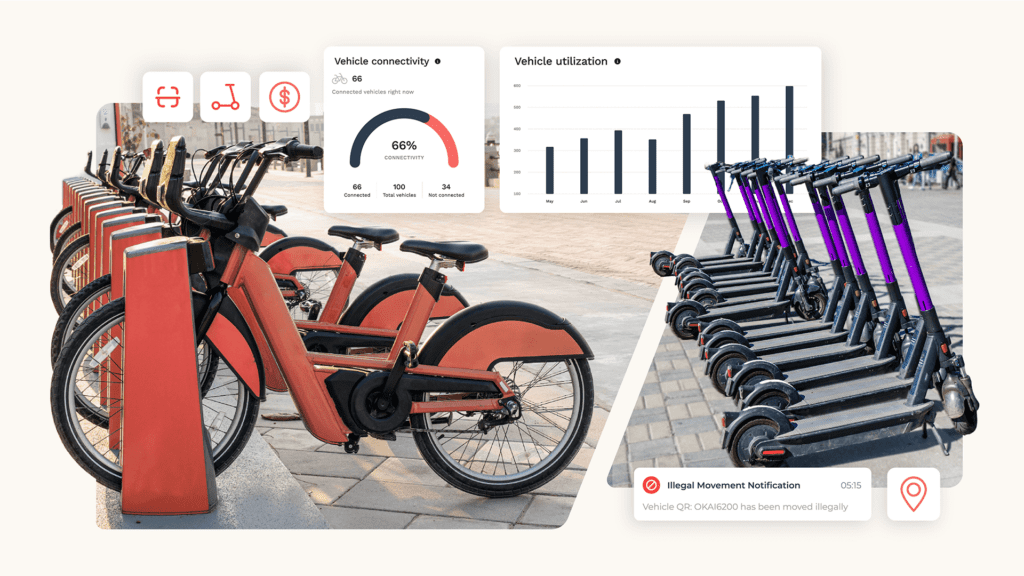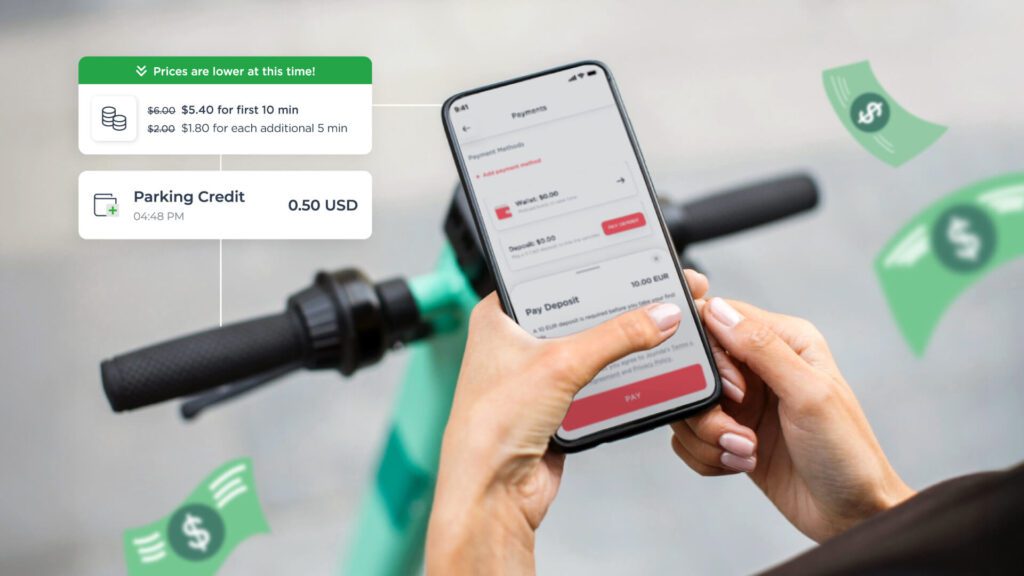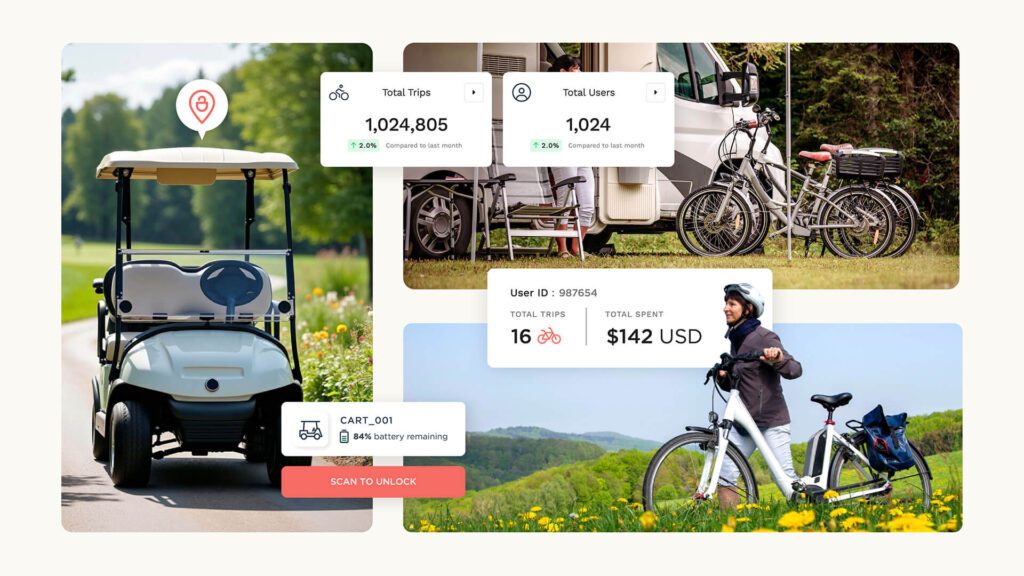We’re calling it now… backend tech will be at the forefront of change this year.
While our hardware partners continue to unveil cutting-edge vehicles—including Segway’s newly revealed S-Pod, NIU’s mopeds that are launching now in the U.S and ACTON’s upcoming Nexus e-bike—the micromobility market is undeniably powered by innovative software, and here are five ways in which global scooter sharing and bike sharing will be reshaped because of it.
1. You’re going to see even more independent micromobility operators:
As recent reports of financial setbacks and employee scale-backs are calling the viability of billion-dollar mobility companies into question, we’ve seen a significant rise particularly among smaller, independent scooter-rental businesses that are successfully launching and growing shared mobility systems. In fact, many of our customers are poised to double and even triple their fleet sizes this year, while Joyride added partners in more than 50 markets in 2019—with that number expected to also triple by 2021. Keep your eyes peeled for micromobility growth in places like Slovakia, Antigua and Vietnam as independent scooter-rental entrepreneurs continue to capitalize on opportunities in places where larger companies don’t currently operate.
2. Tech will take e-scooter safety to the next level:
Helmet selfies won’t just be a fad in 2020. Added safety precautions are going to be more necessary than ever this year, especially in the wake of a recent micromobility study from JAMA Surgery, which found that electric scooter-related injuries among American 18- to 34-year-olds rose by 222% from 2014 to 2018. The majority of those injured (approximately 95%) were not wearing helmets.
Since state, national and international laws all vary when it comes to helmet requirements, the onus is on the scooter-rental businesses and software providers themselves to introduce easy and swift ways for riders to wear helmets. Last month, U.S. electric bike-share operator Wheels reformatted its vehicles to include a compartment for helmets, which are unlocked through the company’s app. The bike is equipped with sensors that detect when helmets are being used, and a 20% discount is given to first-time helmet users. Similarly, U.S. micromobility operator Shared uses AI to determine whether its e-scooter riders are wearing helmets and then rewards customers through perks and discounts. In terms of speed, software is a powerful tool that’s being used to limit how fast riders can go based on their experience (Roll in Canada is one scooter company that does this effectively), and we expect more AI-powered tools and cameras offered to new riders in order to educate them on how to safely get off the ground. As bikes and scooters become more intelligent, software will enable operators to detect problems with their hardware much faster—and before a user experiences any mechanical or electrical issues.
3. Expect the scooter-rental franchising model to take off:
A franchise model has several benefits for both established operators and prospective ones. We’ve designed Joyride with franchising in mind. Using our micromobility software, operators can franchise their brand by adding unlimited scooter-share and bike-share franchisees to their businesses all through one backend dashboard. For example, Joyride customer Fiik uses one main operating dashboard that is consistently adding multiple franchisees, all of which have their own customized dashboards and user apps under the Fiik umbrella (and using the same logo and branding). The model creates a turnkey solution for operators to scale their businesses and it gives franchisees immediate access to all the hardware, software and branding they need to get going. Additionally, it gives businesses a greater opportunity to compete with multi-billion-dollar companies by significantly expanding their fleets with minimized risks (and capital) involved. We expect more of our operators like Fiik to take this approach in 2020, especially as this model becomes an increasingly lucrative path to take.
4. Scooter-share and bike-share systems will be managed more remotely:
While the mobility industry continues to be hyper-local, backend software is being designed to be as global and fluid as possible. A micromobilty platform comprised of a mobile user app, management dashboard and vehicle data measurement can be operated from anywhere on the globe. Look at ZIP in Kelowna, Canada. The dockless scooter-rental company is one of four businesses that launched in Kelowna last year, and its founder, Luke Mydlarz, operates his business more than 2,500 miles away from his home in Ontario. The same can be said for many Joyride customers that have expanded to multiple territories but continue to run their businesses out of their company headquarters, such as Texas-based Blue Duck, which recently launched overseas in Ireland. Advanced software features like Joyride’s new multi-currency and multi-tax functions are making it easy for operators to set up shop in remote locations without themselves having to set foot on-site. To be sure, it’s still necessary to have a solid operational team on the ground in any local market in order to comply with municipal regulations and handle on-site customer engagement/concerns. But be prepared to see more expansion efforts on the part of micromobility brand owners who want to operate in multiple places at once, creating a ripe industry for operations-as-a-service opportunities.
5. Get ready for fully teleoperated scooters:
This year will mark the path to full autonomous vehicles. And we’re nearly there. This month brings the official launch of Tortoise’s Joyride-compatible self-driving scooters and e-bikes, which combine autonomous technology with human intervention to reposition vehicles anywhere in the world. Tortoise founder and former Uber exec Dmitry Shevelenko is among many innovators who believe that autonomous vehicles will help micromobility realize its full potential through eliminating costly and environmentally unfriendly juicing practices. Driverless scooters are going to help operators reach profitability much faster because they will cut down on field operations staff (charging and rebalancing each scooter) and they will also maximize revenue in high-traffic areas at the right times of day. Prepare to see more shared mobility businesses incorporate some level of teleoperational services into their fleets this year—we’re already fielding high levels of interest among Joyride customers worldwide.
We can help predict where your micromobility business will be this year. Contact us today to learn more about software and franchising opportunities powered by the Joyride platform.







